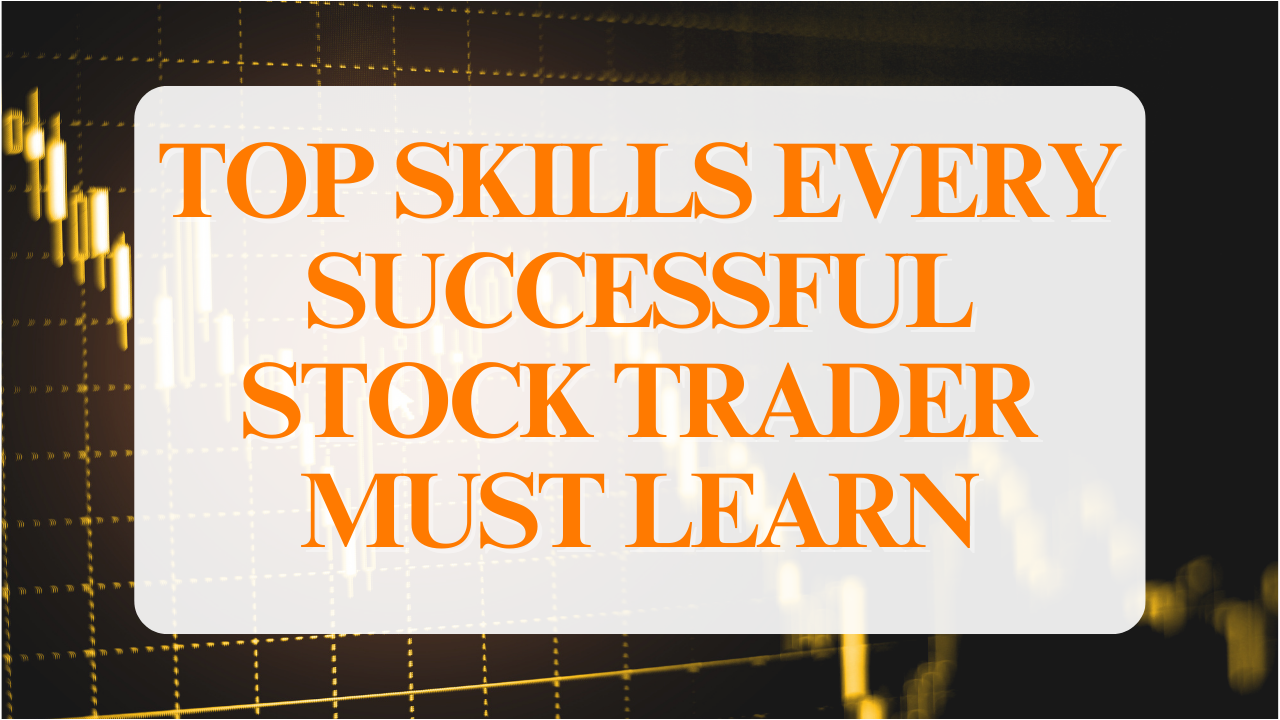
asfasf
 0 comment
0 comment
 27 Apr, 2025
27 Apr, 2025

Many people wrongly believe that successful stock trading is about luck, hot tips, or gut feeling.
In reality, trading is a skill-based profession — just like being a doctor, a pilot, or an engineer.
To survive and thrive in the stock market, you must master a combination of technical, analytical, emotional, and strategic skills.
Without the right skill set, trading becomes mere gambling.
With the right skills, trading becomes an art and science of consistent wealth creation.
Before diving into the must-have skills, it's crucial to understand:
Trading and investing are not the same.
Investing is about building wealth slowly over time (years/decades).
Trading is about capturing opportunities in shorter time frames (minutes, days, weeks).
Thus, while investors focus heavily on business fundamentals, traders need additional specialized skills to survive the daily volatility and quick decision-making environment.
Here are the essential skills that set apart amateurs from professional traders:
What it means:
The ability to read and interpret stock price charts, trends, patterns, and indicators to predict future movements.
Key Areas to Master:
Candlestick patterns
Support and resistance levels
Moving averages (SMA, EMA)
RSI (Relative Strength Index)
MACD (Moving Average Convergence Divergence)
Bollinger Bands
Volume analysis
Why it’s crucial:
Technical analysis provides entry and exit signals, helping traders capitalize on price action with precision.
What it means:
Protecting your trading capital by limiting losses and maximizing gains.
Key Concepts:
Risk-reward ratio (e.g., risking ₹1000 to potentially make ₹3000)
Stop-loss placement
Position sizing (not risking more than 1-2% of your capital per trade)
Diversification across sectors or assets
Why it’s crucial:
Even the best traders lose trades. Managing risk ensures one bad trade doesn’t wipe out your entire portfolio.
What it means:
Keeping emotions like fear, greed, impatience, and overconfidence in check.
How to Develop It:
Have a trading plan and stick to it.
Accept that losses are part of the game.
Avoid revenge trading after a loss.
Remain calm whether you are winning or losing.
Why it’s crucial:
Most traders don't lose money because of bad strategies — they lose because of bad emotional control.
What it means:
Approaching trading systematically rather than impulsively.
Key Practices:
Pre-plan your trades: Identify entry, exit, and stop-loss levels before entering.
Maintain a trade journal: Record every trade’s rationale, outcome, emotions felt, and lessons learned.
Why it’s crucial:
Reviewing your past trades systematically helps fine-tune strategies and eliminate repeating mistakes.
What it means:
Understanding how broader economic indicators and global events influence the stock market.
Important Areas to Study:
Interest rates (e.g., RBI policies)
Inflation data (CPI, WPI)
GDP growth rates
Employment reports
Corporate earnings seasons
Geopolitical news and their impacts
Why it’s crucial:
Even the best technical setups can fail if macroeconomic headwinds are strong.
Context matters.
What it means:
Efficiently managing your trading capital over time.
Principles:
Never put all your capital in one trade.
Keep reserves for opportunity trades during market dips.
Withdraw profits periodically to realize gains.
Why it’s crucial:
Money management separates professional traders from gamblers. Preserve capital first, grow it second.
What it means:
Waiting for the right trade setups instead of forcing trades out of boredom.
Good Traders:
Wait for high-probability setups
Avoid overtrading
Understand that sometimes the best trade is no trade
Why it’s crucial:
Patience ensures you trade quality setups and preserve energy and capital for when opportunities truly arise.
What it means:
The markets are dynamic — what works today may not work tomorrow. Traders must constantly upgrade themselves.
Ways to Stay Updated:
Follow market veterans.
Study new technical setups.
Attend webinars, masterclasses.
Read books and trading psychology studies.
Why it’s crucial:
The market evolves — you must evolve faster.
These aren’t mandatory but mastering them gives you serious competitive advantage:
| Bonus Skill | Impact on Trading |
|---|---|
| Algorithmic Thinking | Understanding automation and bots for faster execution. |
| Options Trading | Using hedging strategies to manage risk creatively. |
| Data Analysis | Using stock screeners and backtesting tools effectively. |
| Behavioral Economics | Understanding crowd psychology to predict market moves. |
| Multi-Asset Trading | Diversifying into commodities, forex, or crypto. |
Without developing core skills, traders fall prey to:
Overleveraging and blowing up accounts
Following "experts" blindly without doing homework
Chasing losses (revenge trading)
FOMO (Fear of Missing Out) driven buying at tops
Panic selling at bottoms
Skill development builds a strong internal compass to avoid these deadly mistakes.
Enters based on news.
No stop-loss.
Lets emotions control decisions.
Ends up losing majority of capital.
Trades based on pre-planned setups.
Uses technical confirmation.
Accepts small losses, rides big winners.
Achieves consistent portfolio growth.
The difference?
Skills — not luck, not talent — pure skills.
If you are starting your journey, here’s a simple path:
| Stage | Focus |
|---|---|
| Beginner | Basics of technical analysis, risk mgmt |
| Intermediate | Master trading psychology, journaling |
| Advanced | Develop trading systems, options trading |
| Pro | Algorithmic models, multi-asset trading |
One skill at a time. Layer by layer. Brick by brick.
In the stock market, talent without skill is useless and capital without discipline is dangerous.
The traders who survive and thrive treat trading as a profession, not a hobby.
They study it.
They respect it.
They master it.
And in return, the market rewards them generously.
So, if you truly want to succeed in trading, start building your skills — because in the stock market:
"Amateurs focus on rewards; professionals focus on risk management and skill building."
Commit to learning.
Practice relentlessly.
Stay humble.
Let skills be your superpower.
Your dream of becoming a successful trader is absolutely possible — it just demands the right preparation.
asfasf
0 comment